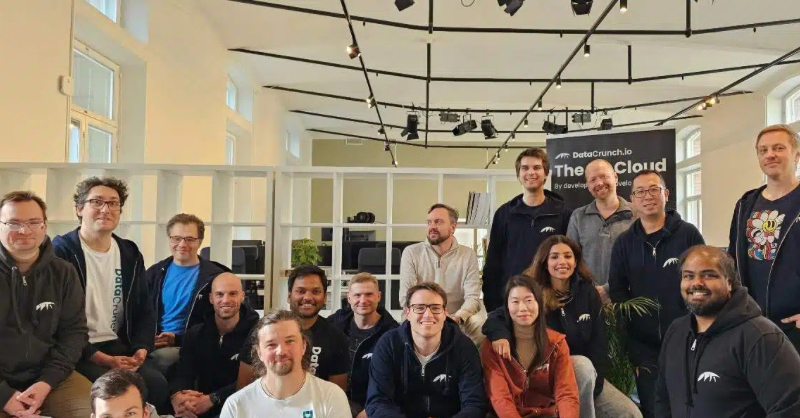The demand for AI computing has reached a fever pitch. Models are growing larger and more complex, while the hardware needed to train them, particularly GPUs, remains in limited supply and comes with a hefty price tag. Into this crowded space steps Helsinki-based DataCrunch, a startup on a mission to make advanced computing more accessible, cost-effective, and sustainable.
With a fresh €55 million in debt and equity financing. Initially bootstrapped, the company raised a €12 million seed round in October 2024, which helped scale its first operations. The new round saw participation from Danish VC fund byFounders, Wise cofounder Taavet Hinrikus’ family office Skaala, pension fund provider Varma and Finnish sovereign wealth fund Tesi. Nordea, Armada Credit Partners, Danske Bank, Norion Bank, and Local Tapiola provide the debt financing.
With this funding, DataCrunch plans to expand its infrastructure and deploy the latest generation of GPUs, including Nvidia’s B300 and GB30 systems. This move comes at a time when access to cutting-edge hardware is a strategic necessity, not just a technical advantage.
For Europe, the rise of providers like DataCrunch is significant, as it offers more sovereign compute capacity at a time when reliance on US hyperscalers raises concerns about both cost and dependency.
How was the idea born?
DataCrunch’s journey began in 2020 when founder Ruben Bryon saw a glaring gap in the cloud services market. While established giants catered to corporations with deep pockets, early-stage startups and even mid-sized companies struggled to afford the computing power needed to train and deploy AI models.
Unlike traditional cloud providers, DataCrunch isn’t chasing the broadest possible customer base. Its services are laser-focused on AI training and inference workloads, making it an attractive partner for both startups and large enterprises. Customers such as Sony and Freepik already tap into its specialised infrastructure, drawn by the promise of lower costs and flexible scaling options.
The company currently operates four data centres in Finland and Iceland, with a central facility in Helsinki that does more than just crunch numbers. It also feeds its waste heat back into the city’s grid, warming homes and reducing environmental impact.
Flexibility meets affordability
At the heart of DataCrunch’s offering is a simple proposition: cheaper, more flexible compute without compromise. For AI startups that often operate on tight budgets, this can mean the difference between building a product or stalling at the prototype stage.
Meanwhile, larger corporates benefit from tailored compute clusters that are both efficient and sustainable. By balancing affordability with performance, DataCrunch is carving out a position as the practical alternative to the industry’s incumbents.
In addition, sustainability is baked into the company’s DNA. The Helsinki data centre doesn’t let energy go to waste; instead, excess heat generated by its servers is repurposed to help warm the city. This approach not only reduces the environmental footprint but also demonstrates how next-generation infrastructure providers can integrate into urban ecosystems.
The road ahead
As the global AI race intensifies, the need for scalable, sovereign, and affordable computing will only grow. With the new capital, a clear customer-focused mission, and a commitment to sustainability, DataCrunch is positioned to become one of Europe’s defining infrastructure players.
The company’s next phase of growth will be a test of whether a leaner, greener challenger can reshape the economics of AI computing and from all signs, it looks ready to rise to the challenge.

